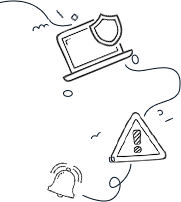Introduction
Did you catch the latest drama about vulnerabilities in Google’s Vertex AI platform? No, it’s not a new soap opera, but it might keep you up at night!
In a recent plot twist, some mischievous tech villain took advantage of LLMs (large language models) through a classic move called privilege escalation. Think of it as hacking your way into a VIP room at a club, only to find out there’s nothing but sensitive data instead of champagne. The attacker managed to mine this data like a pro, lifting hidden secrets that Google’s AI was guarding. Talk about a party crasher!
These dastardly vulnerabilities are like opening a door that shouldn’t be opened, letting outsiders behave like trusted members of the network. It’s akin to an eager fan getting backstage access to a band’s green room. The attackers were able to give themselves a VIP pass to information that was supposed to be locked away tight.
What Is Privilege Escalation?
Essentially, this sneaky tactic allows attackers to exploit systems, applications, or networks to gain access to permissions they’d normally need a golden ticket for. Imagine someone breaking into a candy store and discovering they can not only eat the candy but also run the whole operation. It gives them more control, more power, and often doesn’t result in a sweet ending for anyone else!
There are two main types of privilege escalation, and they’re like the minor and major leagues of this nefarious game:
- Vertical Privilege Escalation (or Privilege Elevation):
This is when the attacker goes from standard user permissions to a higher tier, like an eager intern suddenly getting access to the CEO’s email.
Example: A hacker exploits a flaw in a web application to become the admin. Congratulations, you’re now in charge!
- Horizontal Privilege Escalation:
In this case, the attacker sticks to the same level of privilege but gains access to resources they shouldn’t. It’s akin to a regular moviegoer sneaking into the VIP seating area and binge-watching all the secrets in the director’s cut.
Example: A regular user manages to access another user’s secret files through a system flaw. Spoiler alert: Not cool!
In 2023, privilege escalation accounted for a whopping 12.1% of vulnerabilities in the CISA Known Exploited Vulnerabilities catalog. That’s right, it’s the heavyweight champion of vulnerabilities this year — and one that shouldn’t be taken lightly!
How Can You Protect Against This Vulnerability?
Many breaches involving privilege escalation lead to an exfiltration of vital data, like your grandma’s secret cookie recipe that she trusts only you with. Attackers often zero in on cloud platforms and APIs where privilege mismanagement is more common than missing socks in a laundry cycle.
So, how can you keep your digital castle safe from would-be invaders? Here are some tried-and-true strategies to fend off these virtual marauders!
- Least Privilege Principle: Like a good roommate, ensure that users only have the permissions necessary for their job. Just like you wouldn’t want them raiding your fridge, don’t let them wander into areas that are off-limits!
- Regular Audits and Monitoring: Conduct checks of your permissions and access logs regularly, like a periodic deep clean for your digital workspace. Keep an eye out for any unusual activities that might scream “I’ve been hacked!”
- Patch Management: If you can, auto-update your software, because those security patches are like the spinach of cybersecurity—necessary and good for your health! Many privilege escalation vulnerabilities are exploited via unpatched software, so don’t skip your daily dose!
- Strong Authentication Mechanisms: Turn on multi-factor authentication (MFA) whenever possible. Think of it as sleeping with a baseball bat under your pillow—better safe than sorry!
- User Training and Awareness: Equip yourself and your team with knowledge about cybersecurity best practices. The more you know, the better your chances of dodging those pesky breach pitfalls—like dodgeball, but with hackers instead of balls!
- Application Security: Secure applications against common vulnerabilities (like SQL injection) that could grant elevated privileges. Only download vetted software from reputable app stores—don’t be the one who clicks on “free candy” ads!
By implementing these strategies, you’ll significantly reduce the risk of privilege escalation and safeguard your home and professional networks. Even your mother would be proud of your newfound security skills!
Conclusion
Remember, more than 75% of vulnerabilities are exploited within 19 days of discovery, which shows just how fast cyber attackers can sprint to exploit privilege escalation flaws—like kids to the ice cream truck!
Getting a grip on the risks associated with privilege escalation is key to preventing breaches. This includes adopting a least-privilege access philosophy, regularly patching systems, and immersing yourself in the wondrous world of cybersecurity best practices.





